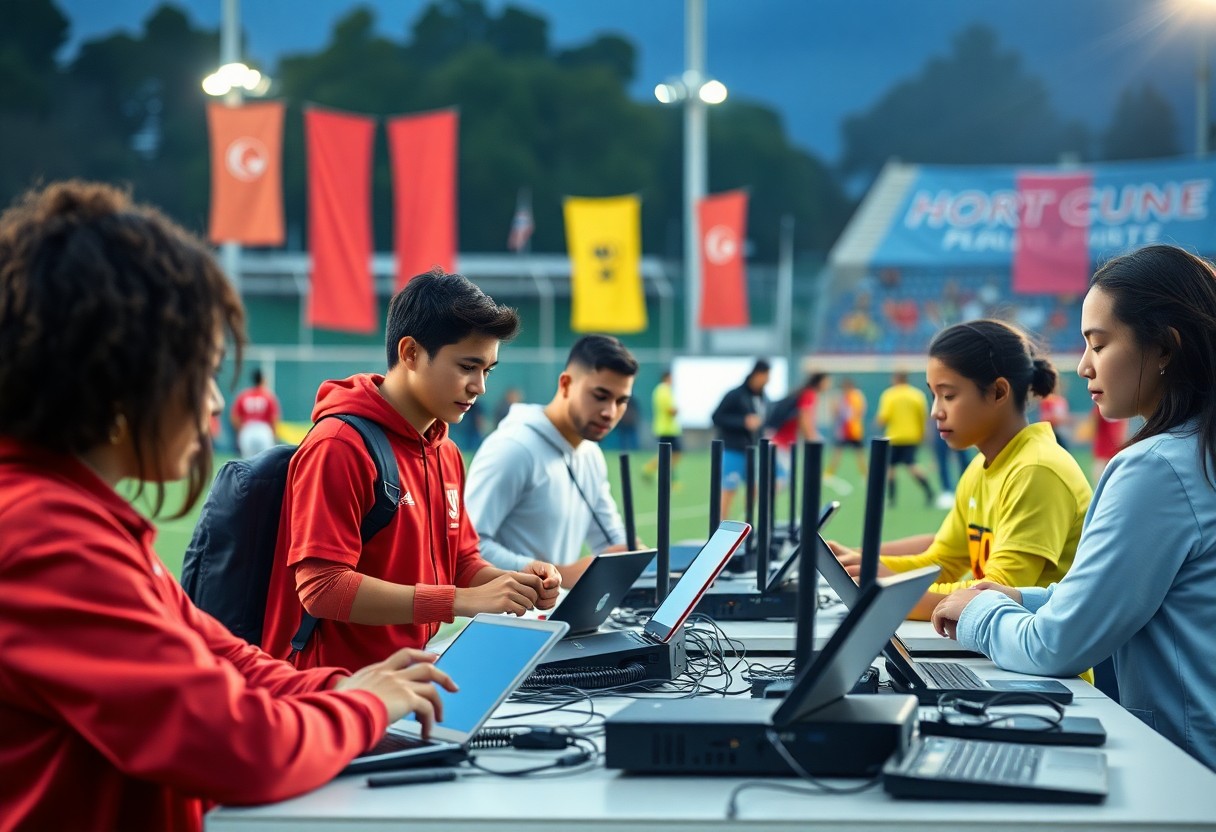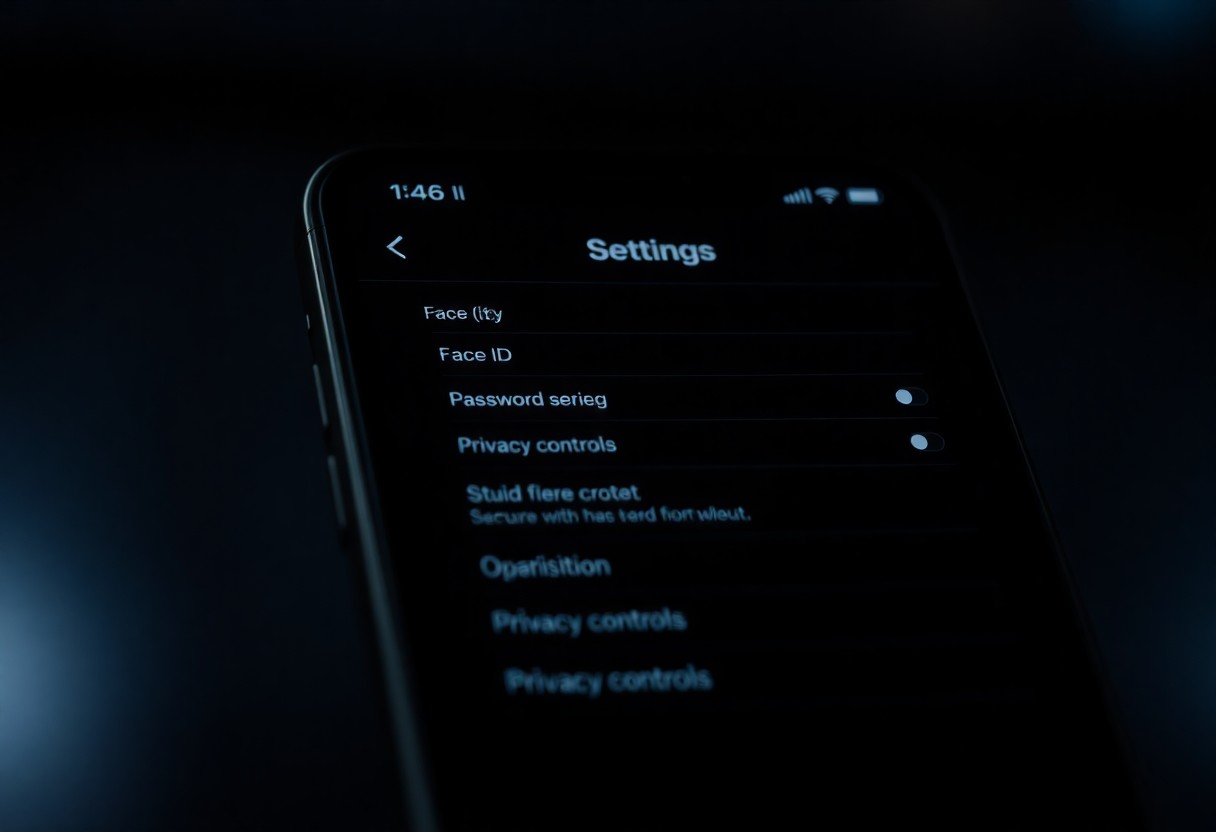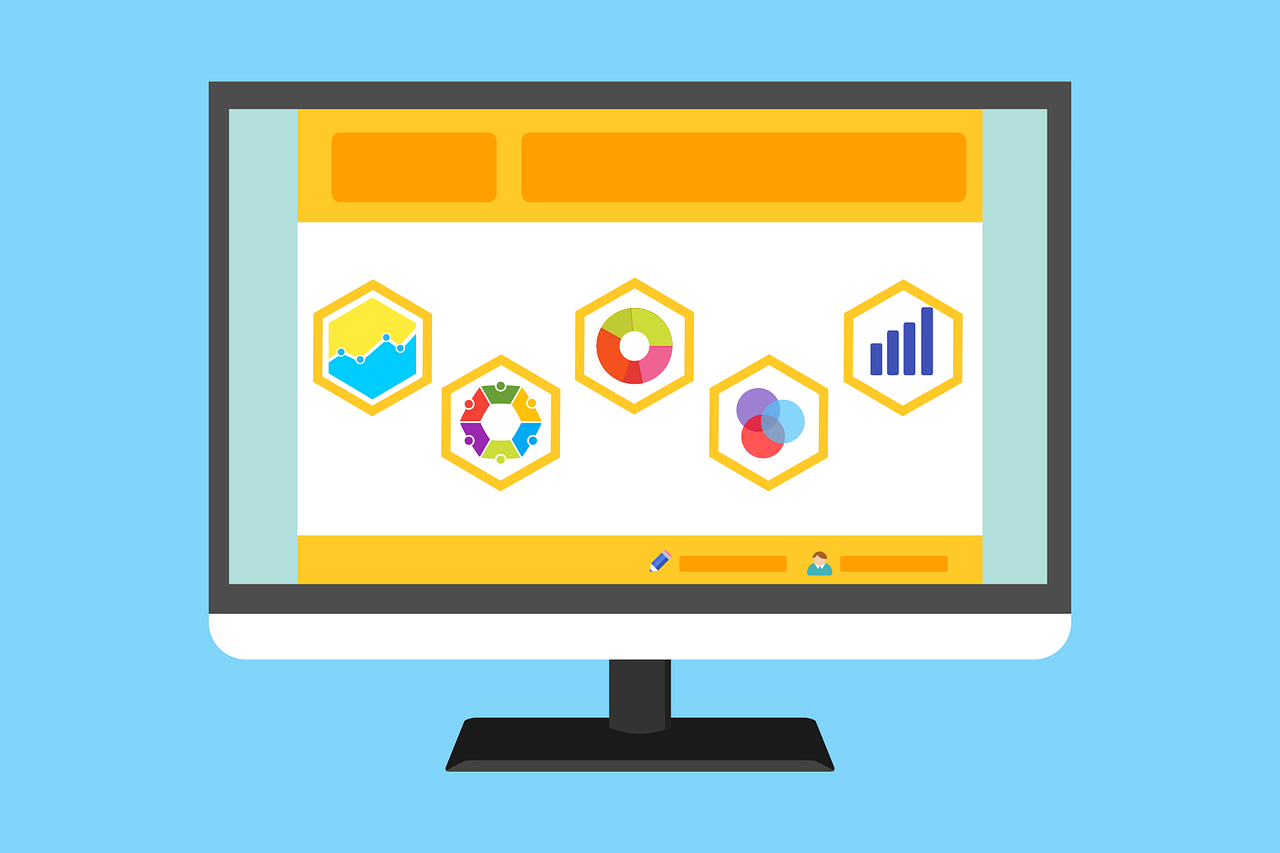Travel with confidence as you explore the world of secure hotspots and mobile routers for your team and tournaments. In today’s connected environment, ensuring that your devices remain protected from cyber threats is vital. This guide will equip you with the knowledge to select the best solutions for your needs, maximizing both security and performance. You’ll learn how to navigate potential risks, enabling seamless communication and connectivity during your travels.
Key Takeaways:
- Evaluate the specific needs of your team for internet connectivity before choosing a hotspot or router.
- Prioritize devices that support multiple connections and offer reliable coverage in various locations.
- Understand data plans available and choose one that accommodates the expected usage during tournaments.
Mapping Your Travels: Choosing the Right Tournament Locations
Selecting the right tournament locations can impact your team’s performance and overall experience. The interplay of logistics, accessibility, and local amenities plays a significant role in your decision-making. Opt for locations that align with your team’s needs, allowing for optimal preparation and focus during the competition.
Factors Influencing Destination Selection
Various aspects can shape your decision on tournament destinations. Key factors to consider include budget, travel time, venue quality, and accommodation options. Assessing these elements ensures a smooth travel experience and minimizes stress. This choice influences not just the immediate game but the overall enjoyment of the tournament.
Analyzing Venue Connectivity and Facilities
Evaluating venue connectivity and facilities is important for a successful tournament trip. Connectivity includes the strength of internet access, availability of hotspots, and proximity to key services. Ensure that the venue provides adequate spaces for teams to practice and gather. Familiarize yourself with on-site amenities that support your team’s preparation and relaxation.
Assessing venues thoroughly can make or break your tournament experience. Investigate if the venue offers reliable Wi-Fi and multiple access points for devices. Check for charging stations, meeting rooms for strategy discussions, and proximity to important services like pharmacies and restaurants. Locations with strong community support often provide additional resources to enhance your team’s experience. This comprehensive analysis will help you select a venue that meets all logistical needs while providing a conducive environment for competition.
The Quest for Connectivity: Identifying Secure Hotspots
Finding secure hotspots is crucial to ensure uninterrupted connectivity during your travels. Look for networks that require a password, as these are often more reliable than open networks. Verify the hotspot’s ownership; connect to networks provided by reputable establishments, such as hotels or cafes, which tend to offer safer connections. Assess encryption methods, as secured connections utilizing WPA2 encryption are less vulnerable to data theft. Stay informed about potential risks and prioritize locating hotspots that meet these safety standards.
Evaluating Public Wi-Fi Safety
Evaluating public Wi-Fi safety involves several key indicators you should assess before connecting. Check for secure connections (look for HTTPS in URLs) and avoid accessing sensitive information, such as banking sites, on public networks. Utilize a VPN whenever possible to add an extra layer of security and keep your online activities private. Think twice before connecting to unfamiliar networks, and always consider the potential risks involved in using public Wi-Fi.
Tips for Finding Reliable Local Hotspots
Finding reliable local hotspots can greatly enhance your travel experience. Start by using apps designed to locate Wi-Fi networks, which often include user reviews and safety ratings. Seek out local coffee shops, libraries, and coworking spaces known for strong connections. Hotel lobbies and airport lounges frequently provide complimentary Wi-Fi, making them convenient options. Check city tourism websites for recommended spots before heading out. This can save you time and frustration.
- Utilize Wi-Fi locator apps to streamline your search.
- Prioritize networking with locals who can recommend trusted locations.
- Be aware of potential connectivity issues during peak hours.
- Consider using mobile data plans as a backup option.
- This strategic approach keeps you connected while minimizing risks.
Usefulness of tips for finding reliable local hotspots extends beyond just locating a connection. Familiarize yourself with the local culture and ask residents about their preferred venues for internet usage. Connecting with other travelers or team members can also provide insights into hidden gems. Always verify the stability and speed of the connection before committing lengthy hours. This ensures you have a dependable connection for your needs.
- Scan for user reviews and ratings on social media platforms.
- Visit local businesses that provide better service and atmosphere.
- Understand the neighborhood’s Wi-Fi access patterns to avoid downtime.
- This comprehensive approach leads to enhanced productivity and connectivity during your travels.
Mobile Routers Unleashed: Your Best Travel Companion
Mobile routers serve as vital tools for traveling teams, ensuring a stable internet connection regardless of your location. With the ability to connect multiple devices and maintain high-speed access, mobile routers enhance your team’s ability to communicate, strategize, and stay updated during tournaments. Investing in a good mobile router can transform your travel experience, providing the reliability you need on the go.
How to Choose the Right Mobile Router for Teams
Selecting the right mobile router involves considering factors like speed, range, and data allowance. Look for routers with dual-band capabilities to ensure robust connectivity in crowded environments. Assess battery life to guarantee that the router can last throughout your tournaments without frequent recharges. Opt for models that support multiple connections, allowing your entire team to stay online simultaneously.
Key Features that Enhance Performance During Tournaments
Key features that enhance the performance of mobile routers during tournaments can make a significant difference in connectivity quality. Look for features that optimize signal strength and user experience. A router that frequently drops connections can hinder your team’s strategic advantage, making these features important in competitive environments.
- High-speed 4G LTE connectivity
- Dual-band support
- Long battery life
- Simultaneous connections for multiple devices
- Data management controls
The combination of these features ensures you maintain optimal connectivity, allowing you and your team to perform at your best during tournaments. Reliable performance is a game-changer, enabling smoother communication and real-time updates important in competitive settings.
- Advanced signal boosting technology
- Compact and portable design
- Easy setup and user-friendly interface
- Ruggedness for travel
- Security features like VPN support
The inclusion of these features addresses specific challenges faced in tournament environments, allowing for consistent and secure internet access regardless of your location. A quality mobile router will become an indispensable asset for you and your team on the road.
Battling Connectivity Issues: On-the-Go Solutions
Navigating connectivity issues while traveling can be frustrating, but you have options to ensure a stable connection. Mobile routers provide reliable access, especially in remote areas with limited network coverage. Consider utilizing a Wi-Fi extender if your accommodation’s signal is weak, or look for public hotspots that offer secure internet access. Use a combination of these solutions to stay connected, even in less-than-ideal circumstances.
Troubleshooting Common Connectivity Problems
Identifying connectivity issues often starts with simple troubleshooting steps. Check if your mobile router has power and that all wires are properly connected. Ensure your device’s network settings are correctly configured and not on airplane mode. If you’re facing slow speeds, run a speed test to confirm the issue, and consider switching your connection type from 2.4GHz to 5GHz for better performance.
Backup Plans: What to Do When All Else Fails
Even with the best precautions, connectivity can still falter. Have a backup plan ready by downloading necessary documents and materials before your trip. You could also purchase a local SIM card or preloaded mobile Wi-Fi device for immediate access. Familiarize yourself with nearby cafes or libraries that offer free Wi-Fi, providing alternative access points should your primary options fail.
A robust backup plan broadens your ability to stay connected under various circumstances. Explore options like satellite phones or portable satellite internet for remote locations where traditional networks may not be available. Some travelers keep necessary resources, including offline maps, important contacts, and communication tools, stored on their devices to ensure they can still function effectively even without an internet connection. Being prepared not only minimizes stress but also helps maintain focus on your travel goals and activities.
Keeping Your Data Safe: Cybersecurity on the Road
Cybersecurity risks increase when traveling, making it necessary to protect your data. Public Wi-Fi networks are often unsecured, leaving your sensitive information vulnerable to hackers. Use a VPN to encrypt your connection and prevent unauthorized access. It’s also wise to keep your systems updated and avoid accessing personal accounts from shared computers. Always have a backup of critical data in case your device is lost or compromised.
Essential Security Practices for Traveling Teams
Implementing foundational security measures will safeguard your team’s data while on the road. Use strong passwords and enable two-factor authentication whenever possible. Regularly educate your team about phishing scams and social engineering tactics that cybercriminals use. Additionally, store sensitive information on encrypted drives and limit the use of personal devices for work-related tasks. Keeping software up to date helps mitigate vulnerabilities, ensuring a safer travel experience.
Tools and Apps to Protect Your Information
Several tools and apps can bolster your cybersecurity during travels. Solutions like LastPass or 1Password manage passwords safely, while NordVPN or ExpressVPN provide secure browsing through encrypted connections. File-sharing platforms, such as Dropbox, offer encrypted storage options. Additionally, using antivirus software can detect and neutralize threats before they affect your devices.
The use of dedicated cybersecurity tools enhances your protection while traveling. For example, a VPN like Surfshark not only hides your IP address but also contrasts your online presence, making it harder for hackers to track you. Its multi-device compatibility means you can protect smartphones and laptops simultaneously, an asset when multiple team members need secure access. Regular use of these applications ensures that you have a robust strategy against evolving cyber threats, keeping your data private and secure during your travels.
To wrap up
Taking this into account, understanding the significance of secure hotspots and mobile routers can significantly enhance your experience during traveling teams and tournaments. By prioritizing reliable and protected internet access, you can ensure seamless communication, efficient coordination, and uninterrupted participation in important events. Investing in the right technology not only safeguards your data but also empowers you to focus on your performance. Make informed choices about your connectivity options to elevate your overall experience on the road.



